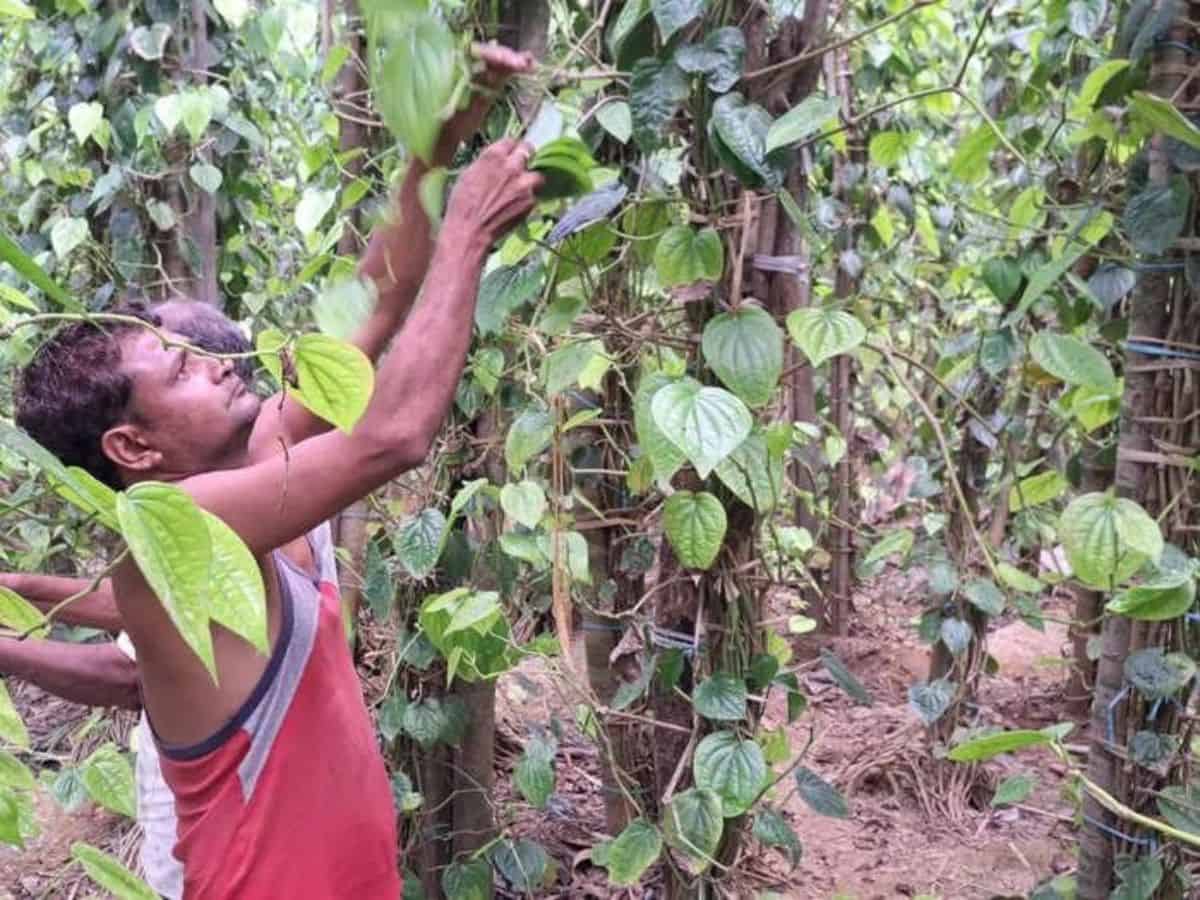
Haveri: Savanur, renowned for its spicy food preparation, has carved a niche in the cultivation of high-quality betel leaves. The favorable climate in Savanur taluk in Haveri district of north Karnataka supports the growth of delicious betel leaves, attracting farmers from the region and surrounding villages.
Most of the farmers here engage in betel leaf cultivation, investing lakhs of rupees per acre.
The betel leaves vine, takes about a year to mature, and is harvested after 18 months, while betel leaves, in constant demand throughout the year, are typically harvested with proper care.
A betel vine can yield leaves for up to 10 years, requiring only dung manure. However, challenges arise with excessive rainfall leading to rotting cords and inadequate rainfall causing vine dryness.
Around 300 hectares under betel cultivation
Speaking to Siasat.com on Saturday, Haveri district deputy director of horticulture L Pradeep said that betel leaves are being grown in 250-300 hectares of land in Savanur, which is of high quality.
The red soil is only suited for its cultivation, the majority of land here has black soil and salty borewell water hence the growing area did not expand. A one-acre estate provides at least 3-4 Pendi per week for 8 months in a year. Rich pan lovers even in Karachi like it. The APMC traders sell leaves to exporters in Mumbai, who send it to Karachi through air cargo he added.
“I grew betel leaves in my 1.2 acres of land for a decade and got an annual income of rs 2.5 lakhs‘,” grower Appa Saheba told Siasat.com.
He said the price depends upon the demand–supply chain but the cultivation never disappoints farmers as the price is stable.
According to market sources, the export of leaves to Pakistan has drastically reduced in recent times due to economic conditions there.
The betel leaves, grown in orchards, are meticulously cut and tied into “pendi,” (bundle) each containing 12 thousand leaves. The pricing of these leaves varies based on quality, with the best whitish leaves commanding a higher price than slightly blackened or mature leaves.
Notably, some betel leaves from Savanur are even exported to Karachi, Pakistan, especially the black and longest leaves that can endure transportation for up to 10 days without spoiling. The ongoing drought throughout the state has impacted betel leaf production, compounded by low yields due to winter conditions.
Cultivation shows promise
Despite these challenges, farmers note that the current year shows promising leaves with better prices. A “pendi” with 12,000 leaves is currently fetching between Rs 5,000 to Rs 15,000 at auctions held at the APMC market. A well-maintained acre of leafy plantations can yield over three lakh rupees per annum. Tens of farmers improved their economic conditions by taking up leaf cultivation.
As organic farming is becoming popular nowadays farmers emphasize the importance of organic fertilizers, particularly dung manure for decades, and proper watering for sustained income throughout the year. The demand for betel leaves surges during Shravana, Dussehra, and Diwali, enabling farmers to generate substantial income from their leafy plantations.
Farmers in Savanur highlight the adverse effects of chemical fertilizers resulting in reduced taste and a shorter lifespan for the vines. While some have attempted to grow leaves reminiscent of Banaras and Calcutta, the original taste and aroma are challenging to replicate, limiting the production of these leaves in smaller quantities. Despite these challenges, Savanur’s betel leaves orchards persist as a thriving source of income for dedicated farmers.
